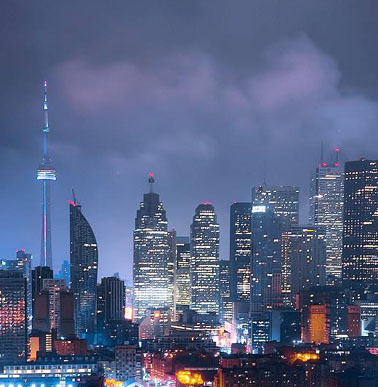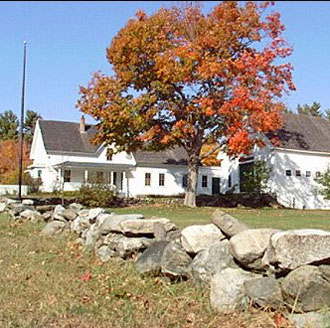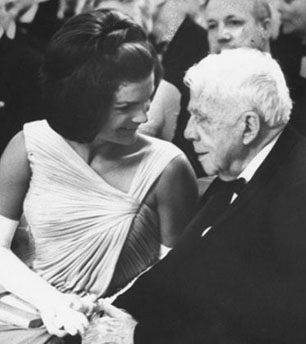If “good fences make good neighbours,” would Trump’s southern border wall make better neighbours of Mexico & USA?
Jun 26th, 2018 | By Dominic Berry | Category: USA Today
I agreed with a lot in Masha Gessen’s Friday, June 22 column for The New Yorker : “Trump’s Opponents Aren’t Arguing for ‘Open Borders’–But Maybe They Should.”
It fits with the “global village” that the Edmonton-born Marshall McLuhan began to talk about in the 1960s. And this has come to echo loudly in the now very diverse City of Toronto where he ended his life (and where I live today) – and in various other places around the world.
At the same time, when I finished Masha Gessen’s piece I also found myself remembering Robert Frost’s wonderfully memorable poem of early 20th century New England, “Mending Wall.” It seems to have some particular relevance for the USA today, even though it was written more than 100 years ago.
Frost’s poem captures something quite deeply rooted in the modern American experience, I think. And it is one of Donald Trump’s undoubted if still largely mystical talents that he has a crude but sometimes deadly instinct for appealing to such things.
For better or worse, this place has now been restored as a “Frost Farm” heritage site, and you can still see the stone wall that appears in “Mending Wall.” Very briefly, the poem is about a conversation between farmer Robert Frost and his neighbouring New England farmer, as they go about their annual exercise of repairing the wall between their two properties.
The poem begins : “Something there is that doesn’t love a wall,/That sends the frozen-ground-swell under it,/And spills the upper boulders in the sun;/And makes gaps even two can pass abreast.” As was the custom, however, the poet meets his neighbour “at spring mending-time” to repair such gaps, and “set the wall between us once again.”
“Just another kind of out-door game”?
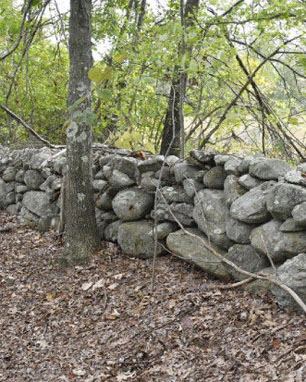 It is not an easy job. You “have to use a spell to make” the rocks “balance.” The poet can’t resist raising the real utility of this difficult spell-casting exercise. He calls it “just another kind of out-door game.” He goes on : “There where it is we do not need the wall:/He is all pine and I am apple orchard./My apple trees will never get across/And eat the cones under his pines, I tell him.”
It is not an easy job. You “have to use a spell to make” the rocks “balance.” The poet can’t resist raising the real utility of this difficult spell-casting exercise. He calls it “just another kind of out-door game.” He goes on : “There where it is we do not need the wall:/He is all pine and I am apple orchard./My apple trees will never get across/And eat the cones under his pines, I tell him.”
At this point the dour New England farmer neighbour, who is not also a poet and a schoolteacher but just a farmer, enters the story directly, very dramatically but very briefly and oh-so-memorably : “He only says, ‘Good fences make good neighbours.’”
The poem goes on for another 18 lines, as the poet wonders about his New England farmer neighbour : “If I could put a notion in his head:/‘Why do they make good neighbours? Isn’t it/Where there are cows? But here there are no cows./Before I built a wall I’d ask to know/What I was walling in or walling out,/And to whom I was like to give offence./Something there is that doesn’t love a wall,/That wants it down …’.”
This, no doubt, is the particular part of the Robert Frost classic “Mending Wall” that Democrats would urge on President Trump. (If he were at all interested in receiving such urges. Which of course he is not, but … for the sake of argument, in what our Canadian Constitution Act 1982 alludes to as “a free and democratic society”…)
It is similarly not for nothing that Robert Frost, who was born in 1874, finally ended his long public career as the American poetic guru of the all-too-brief Jack and Jackie Kennedy liberal nirvana in Washington, DC, subsequently known as “Camelot” after a Broadway show.
In the very end, however, Robert Frost was also a poet with a serious grasp of the real world of the United States of America that he knew and understood first hand, from his birth on March 26, 1874 to his death on January 29, 1963 – about 10 months before the assassination of President Kennedy in Dallas, on November 22, 1963 (when Camelot came to a sudden end).
“Good fences make good neighbours”?
Frost was finally under no illusions about the traditional New England values that were still deeply embedded in his strictly farmer neighbour’s American soul. In “Mending Wall” the poet finally acknowledges that there is no workable way he can successfully communicate his doubts about the real need for the wall in the first place to his neighbour.
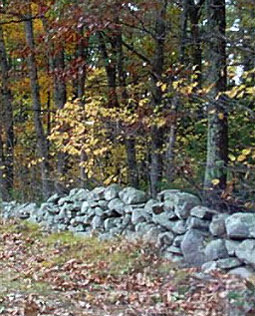 The poem ends with : “He moves in darkness as it seems to me,/Not of woods only and the shade of trees./He will not go behind his father’s saying,/And he likes having thought of it so well/He says again, ‘Good fences make good neighbours.’”
The poem ends with : “He moves in darkness as it seems to me,/Not of woods only and the shade of trees./He will not go behind his father’s saying,/And he likes having thought of it so well/He says again, ‘Good fences make good neighbours.’”
With his otherwise near-insane concept of building a wall along the US-Mexico border, Donald Trump is appealing to this deeply rooted “Good Fences Make Good Neighbours” concept of the modern American mind, as it moved across the continent from the early 17th to late 19th centuries – from the Boston where Robert Frost died to the San Francisco where he was born.
As various other places on the net have already suggested (or otherwise implied), today in 2018 someone ought to put out a rap version of Frost’s “Mending Wall” (said to have been written in 1913, during his three-year literary sojourn in the countryside near London, England).
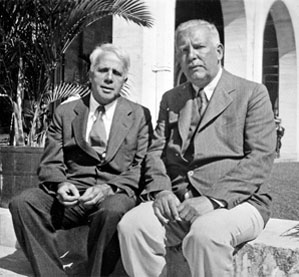
Robert Frost (left) and fellow American poet Wallace Stevens “at the Casa Marina Hotel in Key West, ca. 1940, reproduced by permission of The Huntington Library, San Marino, California.”
The poem outlines a debate about borders, fences, and especially walls in early 20th century New England that has striking similarities with a debate about borders, fences, so-called “immigration,” and walls Mexico was supposed to pay for in the early 21st century USA.
The biggest question is who will the sovereign people finally vote for – in the first instance this coming November 6, 2018? Robert Frost or his neighbour who will still “not go behind his father’s saying”? And in the real world today maybe that does mean it’s a good thing “Trump’s Opponents Aren’t Arguing for ‘Open Borders’” (and neither exactly was Robert Frost in “Mending Wall,” just before the First World War, which really did change everything, everywhere, long, long ago … ).
